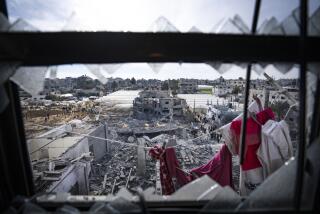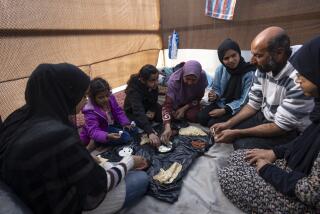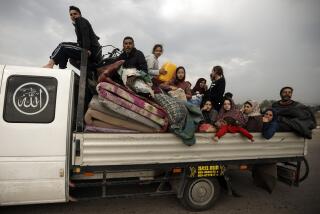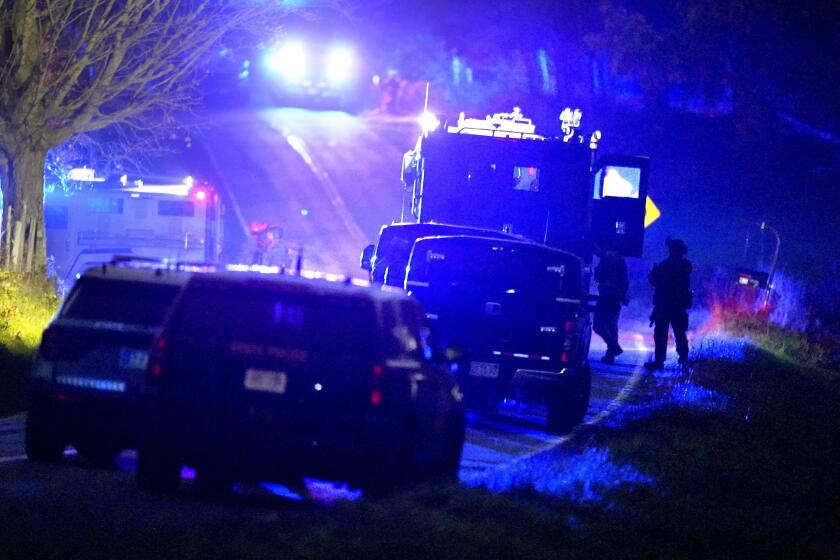Massive exodus of Iraqis from Fallouja overwhelms aid groups
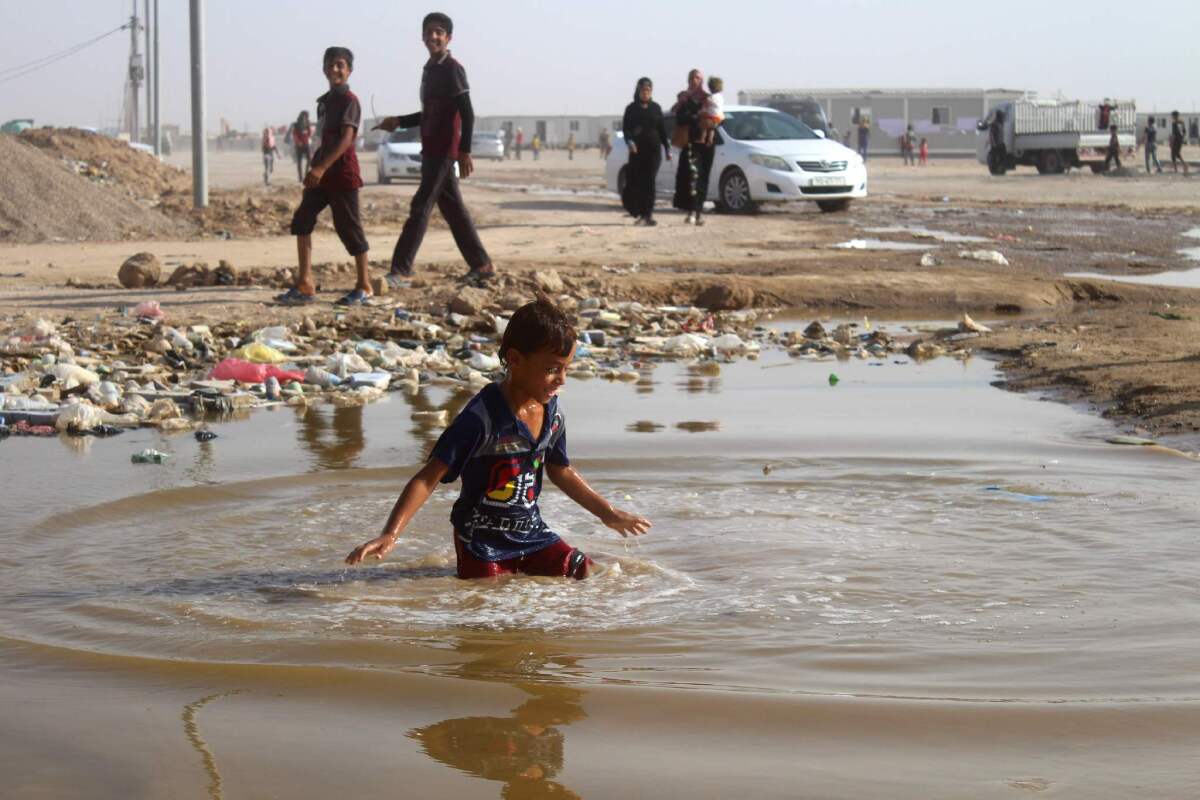
It was still morning when Ismail Taha and his family fled their neighborhood in Fallouja on foot and reached a dirt road on the northwestern tip of the city. That was when the bomb exploded.
The blast killed his wife and three daughters. Taha was left blind with shrapnel wounds where his eyes used to be. His 11-year-old son, Ayoub, fared best, with only a small piece of metal embedded in one eye.
The father and son pushed on for miles, eventually reaching the Habbaniyah Tourist City. The resort once drew the affluent, who played on a nearby lake on personal watercrafts.
Now it is a refugee camp for Iraqis fleeing Fallouja. More than 85,000 people have gushed out of the city — 60,000 of them in three days last week — to escape the violence over the past month as government troops seized control from Islamic State militants there.
The exodus overwhelmed aid groups, which had planned for half that many people. That miscalculation, aid workers said, has led to dire conditions at the Habbaniyah resort and other camps in the city of Amiriyah al-Fallouja, roughly 18 miles south of Fallouja.
Aid workers and displaced Iraqis described water and food shortages, scenes of people sleeping on the dirt with no shelter and 300 families competing for one latrine. The stark, rocky landscape has exacerbated the problem, with temperatures soaring above 110 degrees, frequent sandstorms and constant danger from snakes and scorpions.
“I’ve seen women collapsing in front of me in the searing heat, and the cries, and the shouting, and the sand,” Karl Schembri, a spokesman for the Norwegian Refugee Council aid group, said by phone Friday. “It’s all hellish and nightmarish, and to think that these people have fled from one nightmare to another is completely unacceptable.”
He criticized the government for failing to plan for the humanitarian toll of its military push. “You can’t just do it this way,” he said. “Otherwise what are you liberating Fallouja for, if you’re going to put these people in another hell?”
Um Ahmad, a 70-year-old woman who said her family had spent several days sleeping on sidewalks, lamented that the liberation of Fallouja from the militants did little to improve the lives of civilians there. “We took starvation and shelling under Daesh, and now we come to this?” she said by phone.
Daesh is the Arabic acronym for the Islamic State terror group, which took over the city in early 2014 in the beginning of an offensive that saw the militants gain control of wide swaths of the country. Since then, a series of government offensives backed by war planes of a U.S.-led international coalition have rolled back much of Islamic State’s gains.
Over the past few months, the government has redoubled its efforts to take Anbar province, a longtime bastion of the Sunni insurgency that has plagued Iraq.
Mired in a budget crisis brought on by a downturn in oil prices, the government has relied heavily on international aid organizations to care for displaced civilians.
But the United Nation’s refugee agency said its budget has been pushed to “crisis levels,” with an 80% shortfall in funding. It has called for $17.5 million dollars to cover the immediate needs of those who fled Fallouja.
They have little choice but to stay put in the camps. Government forces are still battling the remnants of Islamic State in the city. Baghdad, less than 40 miles to the east and the main gateway to other provinces, is essentially off-limits as well because, in their effort to find Islamic State militants, security forces aligned with the Shiite-dominated government detain men for a screening that can take up to three weeks.
Even those with relatives in Baghdad have been prevented from entering Baghdad, according to Sameh al-Allawi, an aid worker with the Fallouja Organization for Humanitarian Relief.
The security concerns also have hampered the delivery of aid, relief workers said.
“The most important problem is to get permissions to move water and food to the camps,” Alaa al-Jboori, head of the aid group Dary, said by phone. “It sometimes takes 30 days.”
For his part, Taha relies on his son to guide him around by the hand. They have no tent, “just a sheet put up on a pole to shelter us from the sun,” the blind father said by phone. “I have no place to go. This is it.”
Bulos is a special correspondent.
More to Read
Start your day right
Sign up for Essential California for news, features and recommendations from the L.A. Times and beyond in your inbox six days a week.
You may occasionally receive promotional content from the Los Angeles Times.
